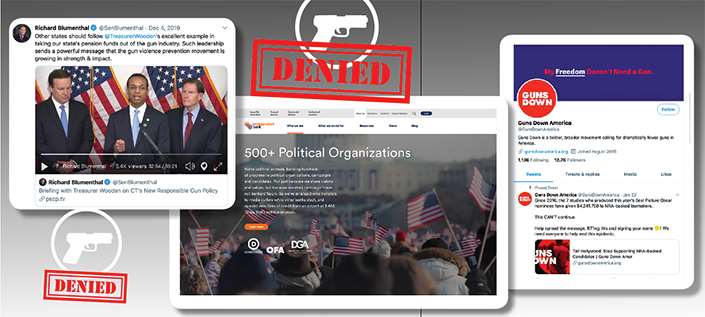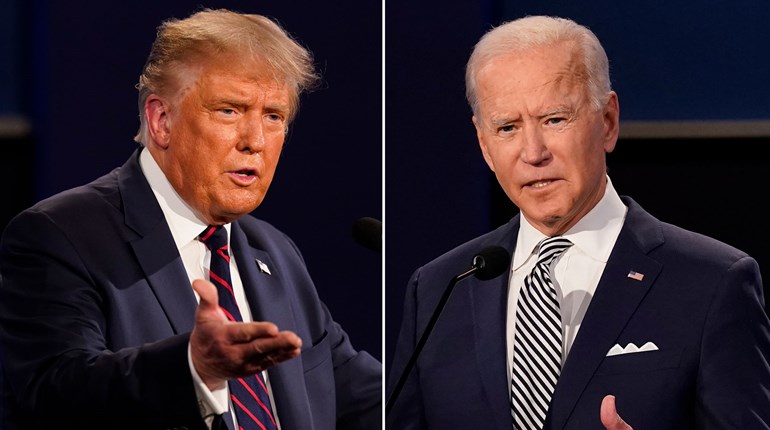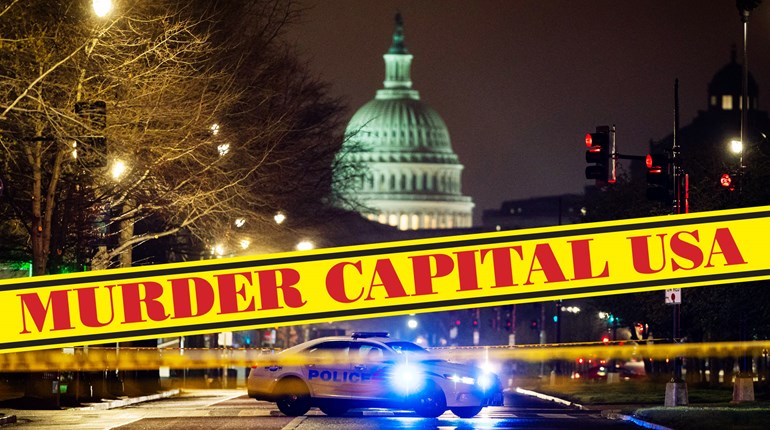
Once, financial-services companies were neutral players in policy debates. Policy controlled them, but they were not creating social policies. That is no longer the case. Now some banks and other companies in the financial-services sector are pushing gun-control policies.
Late last year, for example, Connecticut State Treasurer Shawn Wooden, who commands $37 billion in public pension funds, announced plans to pull $30 million worth of shares from civilian firearm manufacturer securities. Wooden also intends to prohibit similar investments in the future and to establish incentives for banks and financial institutions to adopt anti-gun protocols. The proposition was immediately praised by Sen. Richard Blumenthal (D-Conn.) and other Connecticut politicians who view the divestment from five companies—Clarus Corp., Daicel Corp., Vista Outdoor Inc., Olin Corp. and ammunition maker Northrop Grumman—as a step toward reducing gun violence.
“Other states should follow [Wooden’s] excellent example in taking our state’s pension funds out of the gun industry,” Blumenthal tweeted. “Such leadership sends a powerful message that the gun violence prevention movement is growing in strength and impact.”
Wooden also requested that financial bodies disclose their gun-related portfolios when endeavoring to work with the treasurer’s office. Wooden subsequently selected two firms, Citibank and Rice Financial Product (both had expressed the desire to be part of the “solution on gun violence”), to take on the role of senior bankers in Connecticut’s then-forthcoming $890 million general obligation bond sale.
However, Wooden is hardly an anti-gun-policy innovator. Officials in New York and California have pushed this same type of public activism against perfectly legal gun makers and dealers for some time.
In 2018, Citigroup paved the way as one of the first major Wall Street staples to back harsher gun restrictions, approving a requirement that all of its retail clients refuse to sell firearms to customers under the age of 21, even when such a sale would be completely legal. The mandate also bans those customers from selling bump stocks and other devices that Citigroup deems “increase the firing rate of semi-automatic guns.” Citigroup’s top brass called this stance a “common-sense measure.”
Meanwhile in California, Assemblywoman Sydney Kamlager (D-Los Angeles) recently introduced a bill to encourage banks “that have opened demand accounts with the state to evaluate their relationships with gun manufacturers and adopt lending practices that protect citizens before profits.” The legislation ultimately intends to strong-arm six nationally chartered banks into cutting ties to gun-related businesses.
Much of the spotlight cast on the financial sector has come at the behest of Guns Down America, a group that formed in 2016 following the nightclub terrorist attack in Orlando, Fla. The group created a ranking system that gives banks letter grades for their level of involvement with firearms makers.
This pressure from activists prompted Bank of America to decide to revise its role with the firearms industry. “An immediate step we’re taking is to engage the limited number of clients we have that manufacture assault weapons for non-military use to understand what they can contribute to this shared responsibility,” Bank of America said in a statement in late February 2018. Anti-gun groups then put pressure on scores of other major institutions—from Capital One and JPMorgan Chase to Morgan Stanley, U.S. Bank and Wells Fargo—for providing a line of credit to Vista Outdoor.
The Berkshire Bank, which had formerly issued a line of credit to SIG Sauer, abruptly said it stopped lending to the gunmaker.
In 2018, the California State Teachers’ Retirement System—worth $222.5 billion—also voted to pull its investments from any firearms-related businesses.
Electronic payment conglomerates are also part of this. PayPal’s assault on firearms makers and retailers came at the direction of its chief executive, Dan Schulman, back in 2011. “If you’re going to have a consistent set of values that you stand up for, they have to be reflected in your acceptable-use policy,” he said to The New York Times in July 2018. “Companies, and by extension, their management teams and their CEOs have a moral obligation to try to be a force for good.”
In addition to PayPal, companies such as Square, Stripe and Apple Pay also ban gun sales from their platforms.
Some financial institutions have also begun to sound more like activists. The nation’s largest union-owned bank, Amalgamated Bank, for example, launched a campaign billing itself as “America’s socially responsible bank” and urged others to “join the movement.”
“Most of the big banks conduct business with firearms manufacturers and distributors: by banking them, lending to them, investing in them,” says New York-based Amalgamated Bank on its website. “Often, without realizing it, millions of working Americans invest in gun manufacturers through their retirement plans and millions more bank with the financial institutions that support the firearms industrial complex.”
“We do not maintain banking relationships with businesses involved in gun sales,” says Amalgamated Bank, underscoring that they are offering funds to both large and individual clients that “screen out investments in firearm manufacturing companies.”
“Speak with your wallet. Join the movement moving to America’s socially responsible bank,” Amalgamated says. “We support the people and organizations working to create a more just, compassionate, and sustainable society.”
The Obama Administration Tried This Attack
Banks being played as pieces in a proxy war is hardly new. Let’s rewind to the infamous Obama-era mission.
Operation Choke Point was a 2013 endeavor of the Obama administration’s U.S. Department of Justice (DOJ)that attempted to deny politically disfavored industries access to banking services. Here’s how it worked: The Federal Deposit Insurance Corp. (FDIC) labeled certain businesses “high risk,” including firearms and ammunition dealers, so that unelected regulators, not Congress, could make it “unacceptable for an insured depository institution” to offer banking services to “politically incorrect” businesses.
The Trump administration officially ended Operation Choke Point, but some progressive members of Congress want to bring it back.
“There’s more than one way to skin a cat, and not everything has to be done through legislation explicitly,” said Rep. Alexandria Ocasio-Cortez (D-N.Y.) last year.
Rep. Carolyn Maloney (D-N.Y.) also censured banks at a congressional hearing. She told them not to “finance gun slaughter.” When she urged JPMorgan Chase to deny credit for legal firearm sales, as some other financial institutions had done, the CEO of JPMorgan Chase responded, “We can certainly consider that. Yes.”
“Around the time of Operation Choke Point, we started encountering a lot of problems in finding a credit-card company to do our processing,” said Gary Eliseo, founder of Competition Machine Inc. “I finally did find a processor that took my business, but I had to assure them that we did not manufacture firearms. I wasn’t alone in this. Chase Bank won’t allow anything, eBay hasn’t allowed anything for a long time and neither will PayPal.”
He recalled an incident several years ago in which a customer sent out a payment for a custom rifle stock, and PayPal abruptly froze the account.
Many companies don’t want to behave as activists; meanwhile, a few startups are even stepping in to help gun makers.
“They wouldn’t even let me return the money to the customer; they just froze the whole thing up and tried to make it into this big deal,” Eliseo said. “Financial institutions just don’t want to get involved. I hear a lot today about people having all sorts of problems with banks and financial institutions.”
Eliseo founded his company in southern California in 2007. Competition Machine Inc. was initially only a manufacturer of firearms accessories, but after what he describes as continual harassment from local government and endless inspections despite never having a violation, he relocated his small four-man team to Arizona in 2014 and expanded into making firearms.
To stop such harassment, Sen. Ted Cruz (R-Texas) cosponsored legislation titled the “Financial Institution Customer Protection Act of 2019.” This is an updated version of the 2016 bill that was written in reaction to Operation Choke Point to stop federal agencies from manipulating banks to “choke off” certain lawful industries.
“Under the previous administration, government officials at agencies such as the DOJ and the FDIC abused their power to become a partisan arm of the administration,” Cruz stated.
The proposed bill “prohibits a federal banking agency from formally or informally suggesting, requesting or ordering a depository institution to terminate either a specific customer account, or a group of customer accounts, or otherwise restrict or discourage it from entering into or maintaining a banking relationship with a specific customer or group of customers” unless the agency “has a material reason to do so” that is “not based solely on reputation risk to the institution.” (The “material reason” pertains to national security threats and terrorist financing.)
There is something of a silver lining amid the escalating war waged by the finance world. It has propelled devoted supporters of the Second Amendment to use their own creativity and business skills to cater to the needs of their fellow patriots. Several gun and accessories manufacturers have even set up their own card-processing business just for the firearms industry.
Also, given that crowdfunding sites, like Kickstarter and Indiegogo, don’t allow users to raise money for innovative firearms enterprises, in 2018 an entrepreneur named Larry Lopata created a crowdfunding site, GunDynamics.com.
Lopata was at the 2020 Shooting, Hunting, Outdoor Trade Show representing various clients he’d helped with fundraising. “We’re helping to raise money for them,” said Lopata, “and we’re helping to connect innovators with manufacturers that are interested in their product designs. This is how freedom works. A free market has helped America stay ahead in innovative firearms development, and we want to keep it that way.”
“There are grassroots avenues available. Individuals can move their money to banks that do not support ‘political weaponization’ agendas,” said financial-risk analyst Dennis Santiago. “There are banks that continue to adhere to the neutral financial services principles that returned after Operation Choke Point.”
Wells Fargo has remained something of a bulwark against the onslaught. Despite condemnation from many anti-gun demonstrators, the institution has remained relatively steadfast in its defense of the $14 billion-a-year legal firearms industry. It has, for example, continued to grant multi-million-dollar lines of credit to the likes of Sturm, Ruger & Co.
“We do not believe the American public wants banks to decide which legal products consumers can and cannot buy,” a spokesperson for Wells Fargo said in a statement last year. “Changes to gun laws and regulations should be determined through a legislative process that gives the American public an opportunity to participate and not be arbitrarily set by a bank.”
Visa Inc. has also said it will not prevent customers from utilizing its services in the legal buying of guns.
“We are guided by the federal laws in a country, and our job is to create and to facilitate fair and secure commerce,” Chairman and CEO Alfred Kelly said last August.
Mastercard has also vowed to not dictate “what consumers can and cannot buy.”

Legal Protections Are Also Being Threatened
Meanwhile, the Democratic candidates hoping to take this year’s presidential ticket have all made pledges to repeal the Protection of Lawful Commerce in Arms Act. Enacted by Congress in 2005 and signed into law by George W. Bush, with widespread bipartisan support, the legislation does not award gunmakers any protection from product-liability claims; rather, it cements the longstanding axiom that one party is not legally liable for the intentional criminal acts of another party. Just as a car manufacturer is not automatically culpable for a drunk driver who causes an accident, a gun manufacturer is not to blame if a third-party illegally misuses a firearm.
Yet there is still some optimism that between all the political and financial hysteria, cooler heads will prevail.
“Banks that choose to participate in ‘help gun violence’ initiatives are setting themselves up to be the future deep pocket in civil liberty and liability lawsuits, when gun makers assert that they operated in certain manners because a bank required them to do so in their business covenants and codes of conduct to access financial services,” Santiago said. “Eventually, federal regulators will probably intervene to restore order to the banking system in a manner that assures fair and neutral access to financial services by legal businesses. It is not in the national interest of the United States for banks to privatize social policy.”

































